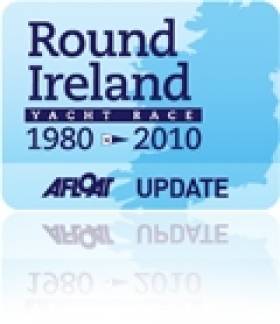Displaying items by tag: 60th Anniversary
Stena Line Celebrates 60th Anniversary: From Shopping Boats to Floating Bridges
Ferry company Stena Line celebrates its 60th anniversary today having established itself as a trusted link between people, places and societies.
Sten A. Olsson, the founder of Stena Line, began operating a shipping service from his hometown Gothenburg in Sweden to Skagen in Denmark in 1962 where he was a scrap merchant for 20 years. Where others saw waste, he saw business opportunities, as he needed a means to transport scrap metal, helping to lay the foundations for what would become one of the most iconic brands in Sweden.
In 1967, after establishing routes to Skagen and later Fredrikshavn, Stena Line opened a direct route from west Sweden with its route to Kiel, Germany. Through strategic purchases and acquisitions, Stena Line in the 80s and 90s, now under the management of Sten’s son, Dan Sten Olsson, established its first routes from the Netherlands to the UK and from the UK to Ireland where is still dominates in the Irish Sea ferry market.
Following the fall of the iron curtain, Stena Line introduced the new Karlskrona – Gdynia route in 1995 which laid the foundations for what is now one Stena Line’s busiest regions.
Stena Line transports 6 million passengers and several million tonnes of freight units per year on 38 ships, operating 18 routes across a European wide network spanning from the west of Ireland to Latvia. Three principles have always determined the course of the company: the ambition to grow, the ability to adapt, and a never-ending curiosity that inspires new innovations.
“At Stena Line, we never forget our heritage. Sten A Olsson was a real entrepreneur, and it was his ambition, flexibility and everlasting curiosity that shaped our DNA. Over the six decades that have passed since he opened his first shipping service, we have continued to challenge existing ideas and models within our business. This is what has enabled us to develop into a leading ferry operator. And we are now eagerly looking forward to taking the next steps in our future, with further expansion and sustainable innovations“, said Niclas Mårtensson, CEO Stena Line.
The company is characterised by its efficient, regular passenger and freight services and is constantly reviewing its business to offer its customers the best experience on the Irish Sea.
Today, Stena Line is an efficient, high-frequency, freight-heavy and guest-friendly ferry transport service. Constant innovation and transition saw the original “floating grocery store” to Denmark first turn into a leisure, cruise like business driven by tax-free shopping in the 80´s and 90´s, and then into today’s resourceful, flexible and network-driven company.
The next big challenge for the operator and the entire transport sector is the green transition. Projects like the methanol ferry on Kiel-Göteborg, the state-of-art E-Flexer ferries, and ambitious electrification projects will put the Stena Line motto into reality: Connecting Europe for a Sustainable Future.
The 'Home of the Round Ireland' Celebrates 60
Wicklow Sailing Club's 60th Anniversary Dinner Dance will be held in the Grand Hotel, Wicklow at 8pm on Saturday the 20th of November. Fred Drew will be mounting a one off Historical Display of the Club's major events, which will feature the staging of the Round Ireland race. Contact Kerrie 0404 67526 or [email protected] for more information or to reserve tickets. Tickets are €50pp.
For a look back over a recent history of the race read Afloat's Round Ireland Yacht Race review





























































